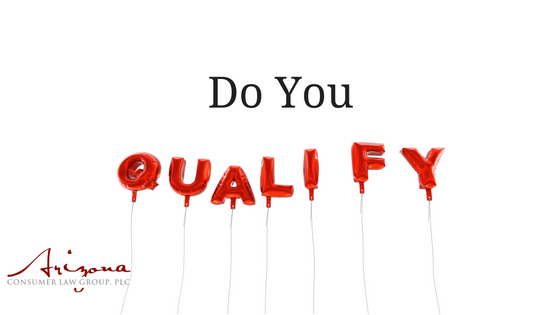Periodically the United States Trustee’s Office updates the income limits used to determine whether or not you qualify for a chapter 7 bankruptcy filing.
Overwhelmingly people that file for bankruptcy file under chapter 7 of the Bankruptcy Code. Chapter 7 has numerous advantages over chapter 13 bankruptcy filings. Below are a few of the advantages:
Chapter 7 Bankruptcy is a Relatively Short Process
In Arizona the typical chapter 7 bankruptcy case takes about 5 months from the day the case is filed with the court. This is compared to a chapter 13 bankruptcy that usually lasts 5 years but can be as short as 3 years.
Chapter 7 Bankruptcy Does Not Require a Monthly Payment
Chapter 13 bankruptcy requires that you propose a plan to your creditors whereby you will pay back a portion of your debts over a 5 year period. Chapter 7, on other hand, does not require you to propose a plan and there is no monthly payment requirement.
Chapter 7 Bankruptcy is Less Expensive
Attorney’s fees in a chapter 13 case are more because your attorney will be working with you for a five (5) year period. As a chapter 7 is usually about 5 months the costs are much less (typically half) the price of a chapter 13. Click HERE to learn the fees charged by the Arizona Consumer Law Group for chapter 7 bankruptcy.
There are a host of other reasons that one would choose to file a chapter 7 over a chapter 13, but before you can decide you must determine if you qualify for a chapter 7. The new income limits are below:
New 2016 Means Test Income Limits
On November 1, 2016 new income numbers were released that must be used on all bankruptcy cases filed from November 1 forward. It is important to note that these income limitations are for Arizona only.
If you live in Arizona and your income is at or below the following amounts you will qualify for a chapter 7 bankruptcy filing:
Family Size Income Amount
1 $46,196
2 $57,953
3 $61,452
4 $71,154
5 $79,554
6 $87,954
7 $96,354
8 $104,754
These numbers represent gross income (before taxes). If you have a family larger than 8, you simply add an additional $8,400 for each additional family member. It is also important to note that these numbers apply to the number of people living in the same home and there is no requirement that the people actually be related.
What If I Make Too Much Money?
If your income is higher than what is allowed under the Means Test you may still be able to qualify. There are numerous deductions that can be made to bring your income below the limits stated above.
Deductions can be made for
- Taxes taken out of your paycheck
- Court ordered payments like alimony or child support
- Health Insurance Premiums
- Payments on secured debt like mortgage payments and car payments
- Payments that are being made to the IRS for past due taxes
- Educational expenses for your children
- Charitable contributions
- Medical Expenses
Further, there are standard deductions that are made based upon the IRS national standards for things like house, food, and transportation.
While no attorney can tell you for sure if you will qualify for a chapter 7 bankruptcy until the case is fully evaluated, even if your income exceeds the limits set in place by the U.S. Trustee’s Office you still may be able to qualify depending on your situation and the available deductions.
Arizona Consumer Law Group Offers a Free Bankruptcy Consultation
Bankruptcy is a bid decision and you should gather as much information as you can prior to making this decision. I offer a no obligation free consultation where we can discuss your specific situation and provide you with options as you work to take care of your debt problem.
Give us a call at (480) 420-4028.
Schedule a Free Consultation!
 John Skiba, Esq.
John Skiba, Esq.
We offer a free consultation to discuss your debt problem and help you put together a game plan to eliminate your debt once and for all. Give us a call at (480) 420-4028

